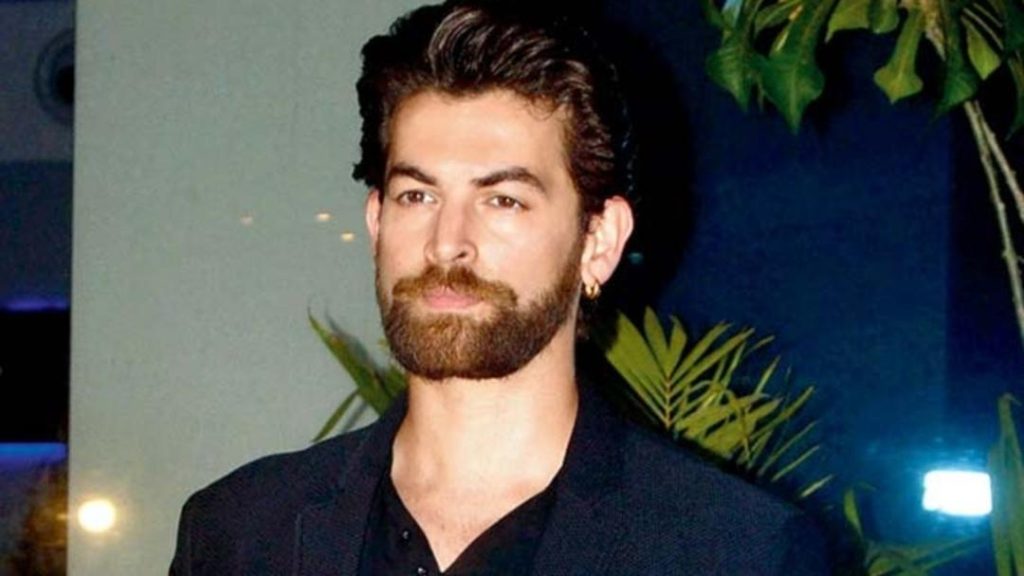
Stars get 11th ₹100 crore budget film even after 10 flops: Neil
The Indian film industry is known for its unpredictability, and success is often measured by a single hit film. However, some actors and actresses have been fortunate enough to get multiple chances to revive their careers, even after stringing together a series of flops. Recently, actor Neil Nitin Mukesh opened up about the unfair treatment faced by small-time actors in the industry, highlighting the stark contrast between the opportunities offered to big stars and those given to smaller actors.
In an interview, Neil voiced his frustration, stating that big actors and stars often get a free pass, even after ten flops. He shared, “Big actors/stars…give 10 flop films and…are still given their 11th ₹100 crore budget film to make a comeback…but for small actors like us…if there are two flops in a row, they say ‘you be at home now’…or ‘your career is over’.”
Neil’s statement is a stark reality check for the film industry, which often favors established stars over newcomers. While big stars like Shah Rukh Khan, Salman Khan, and Hrithik Roshan have multiple flops to their credit, they continue to get lucrative offers and high-budget films. On the other hand, smaller actors and actresses often face the music after just two or three flops, leaving them with limited options to revive their careers.
This disparity is not limited to box office performance alone. Big stars often have a loyal fan base, which translates to a guaranteed audience for their films. This, in turn, makes it easier for them to get more offers and bigger budgets. Smaller actors, on the other hand, have to work twice as hard to build a following and convince producers to take a chance on them.
Neil’s experience is a testament to this unfair treatment. Despite having a string of flops, the actor has continued to get offers from filmmakers, albeit with smaller budgets. However, he believes that this is not the case for most small-time actors, who are often written off after two or three flops.
The reasons for this disparity are varied. For one, big stars have a strong fan base, which translates to a guaranteed audience for their films. This makes them a safer bet for producers, who are willing to take a risk on a bigger budget film. Smaller actors, on the other hand, do not have the same level of pull, making it harder for them to get big-budget offers.
Another reason is the network effect. Big stars often have connections within the industry, which gives them an unfair advantage when it comes to getting offers. They have established relationships with producers, directors, and other actors, which makes it easier for them to get more work. Smaller actors, on the other hand, often have to start from scratch, building relationships and networking to get their foot in the door.
The consequences of this unfair treatment are far-reaching. For one, it creates a culture of mediocrity, where actors are judged solely on their box office performance rather than their talent or dedication. It also leads to a lack of diversity in the types of films being made, as producers are more likely to opt for safe, tried-and-tested formulas rather than taking a risk on new and innovative ideas.
Furthermore, this disparity can have a devastating impact on the mental health and well-being of smaller actors. The pressure to constantly deliver hits can be overwhelming, leading to stress, anxiety, and depression. The fear of being written off after just a few flops can also lead to creative stagnation, as actors become risk-averse and hesitant to take on new projects.
In conclusion, Neil’s statement is a stark reminder of the unfair treatment faced by small-time actors in the Indian film industry. While big stars get multiple chances to revive their careers, even after ten flops, smaller actors are often written off after just two or three flops. This disparity is a result of a combination of factors, including the network effect, fan base, and the pressure to constantly deliver hits. It is essential for the industry to recognize this unfair treatment and work towards creating a more level playing field, where talent and dedication are judged on their own merit, rather than their box office performance.






